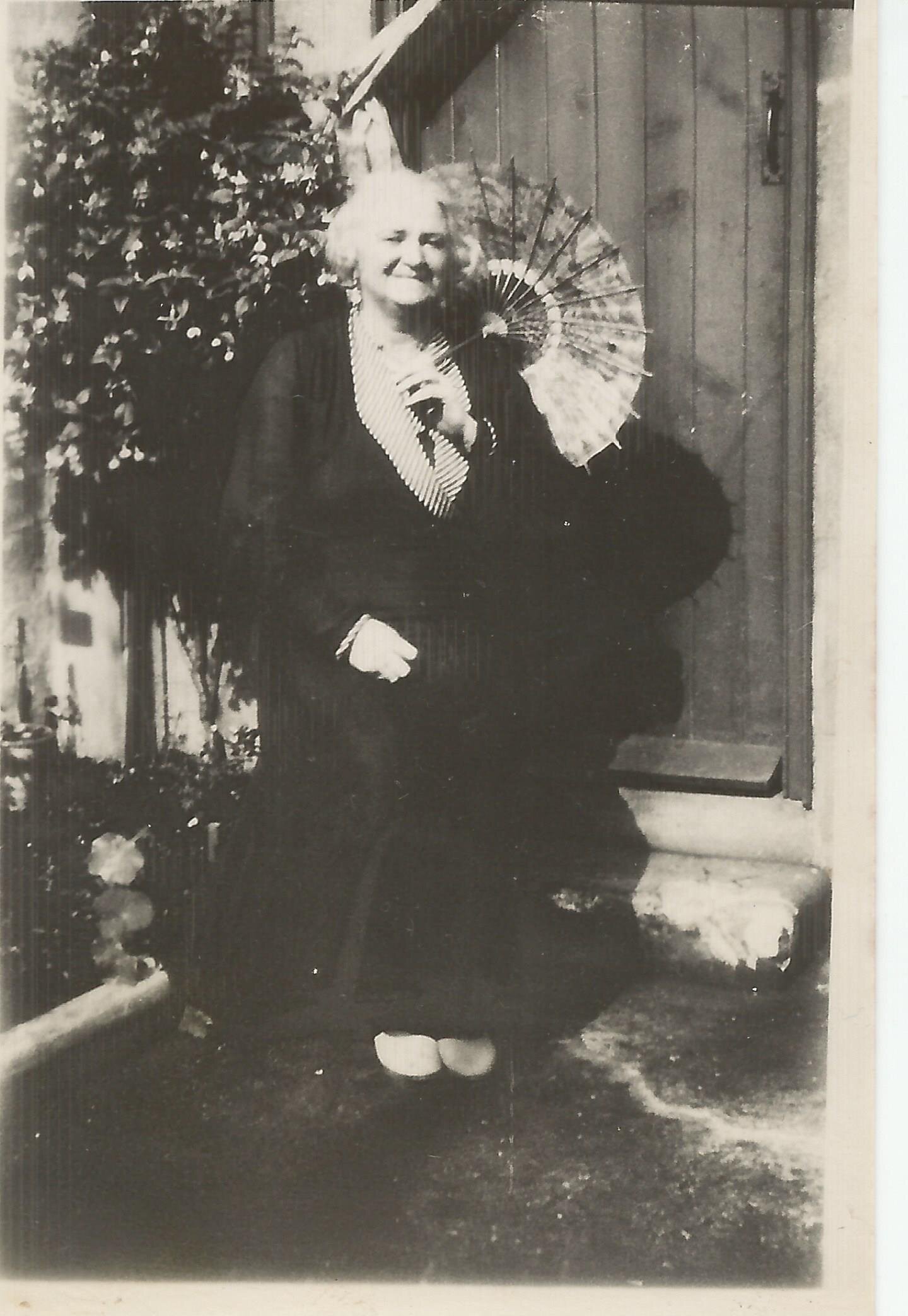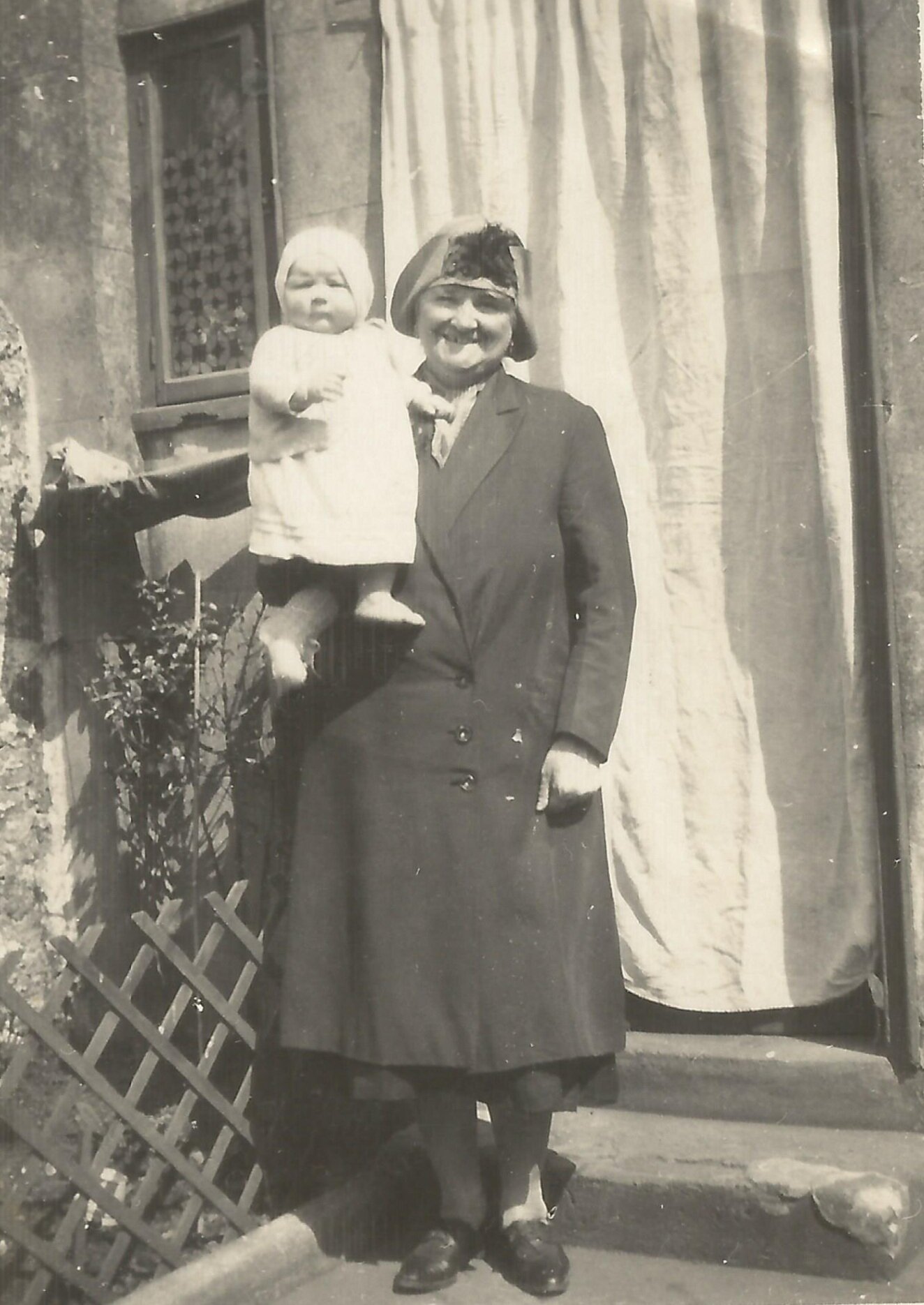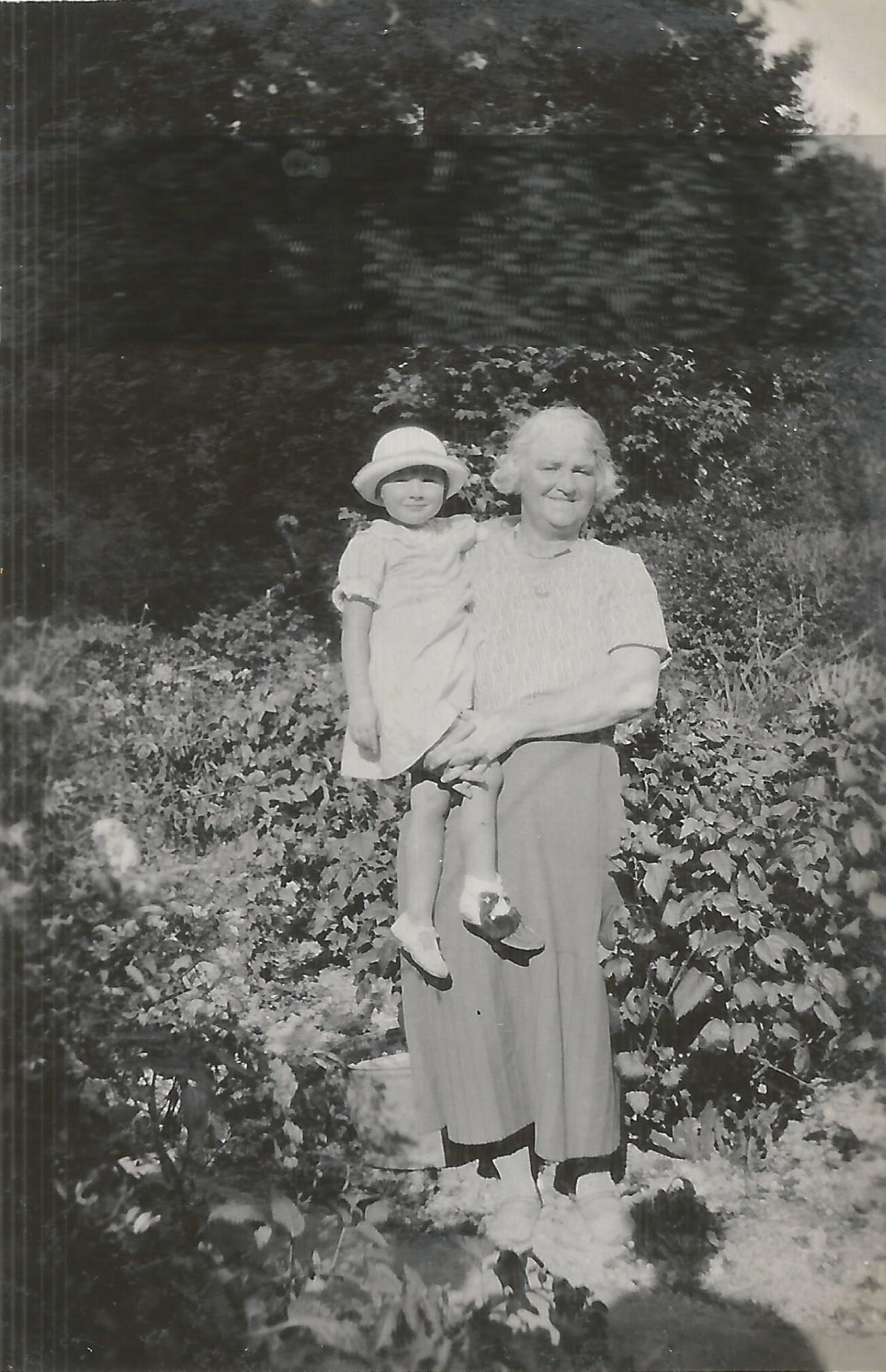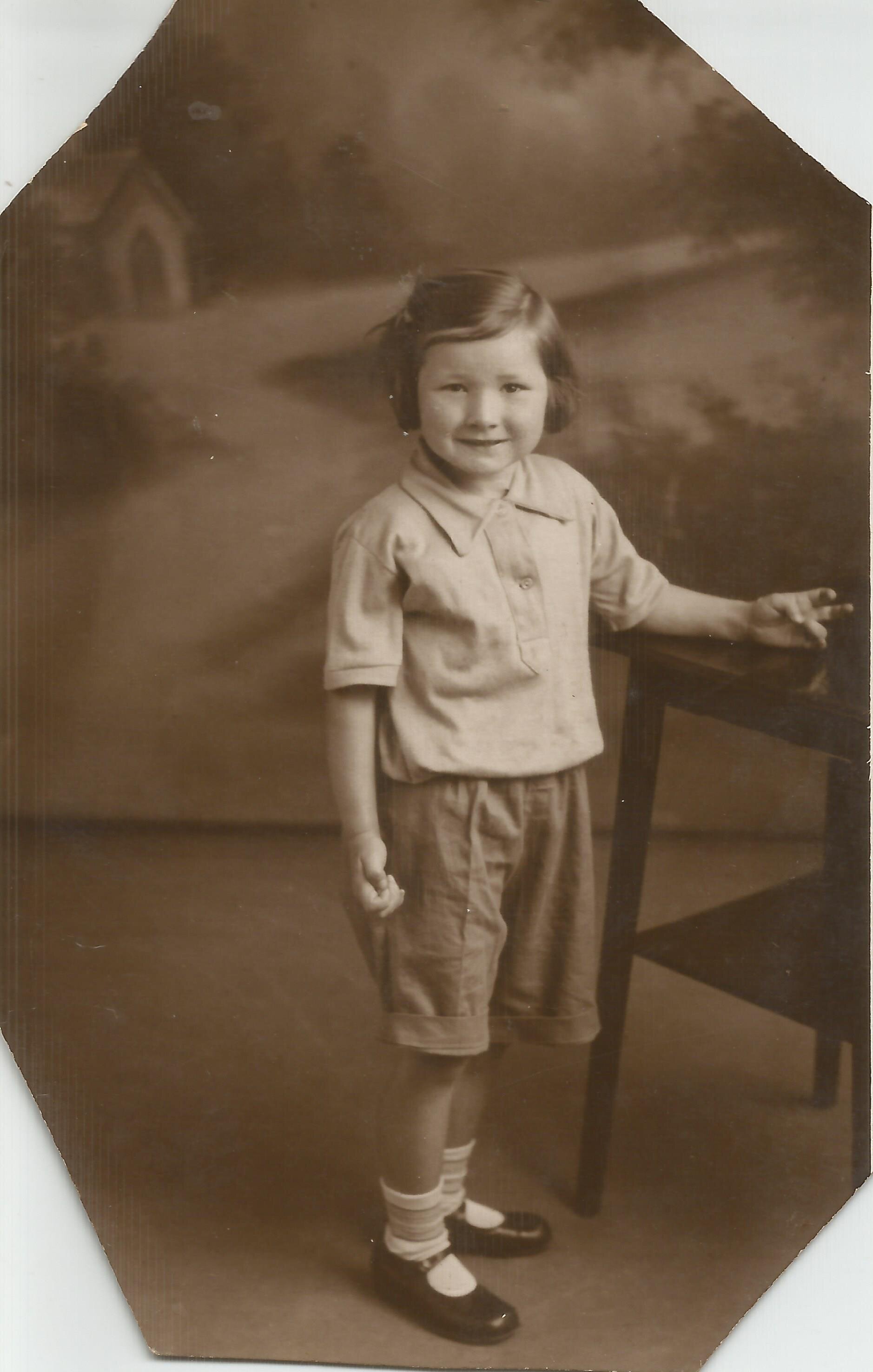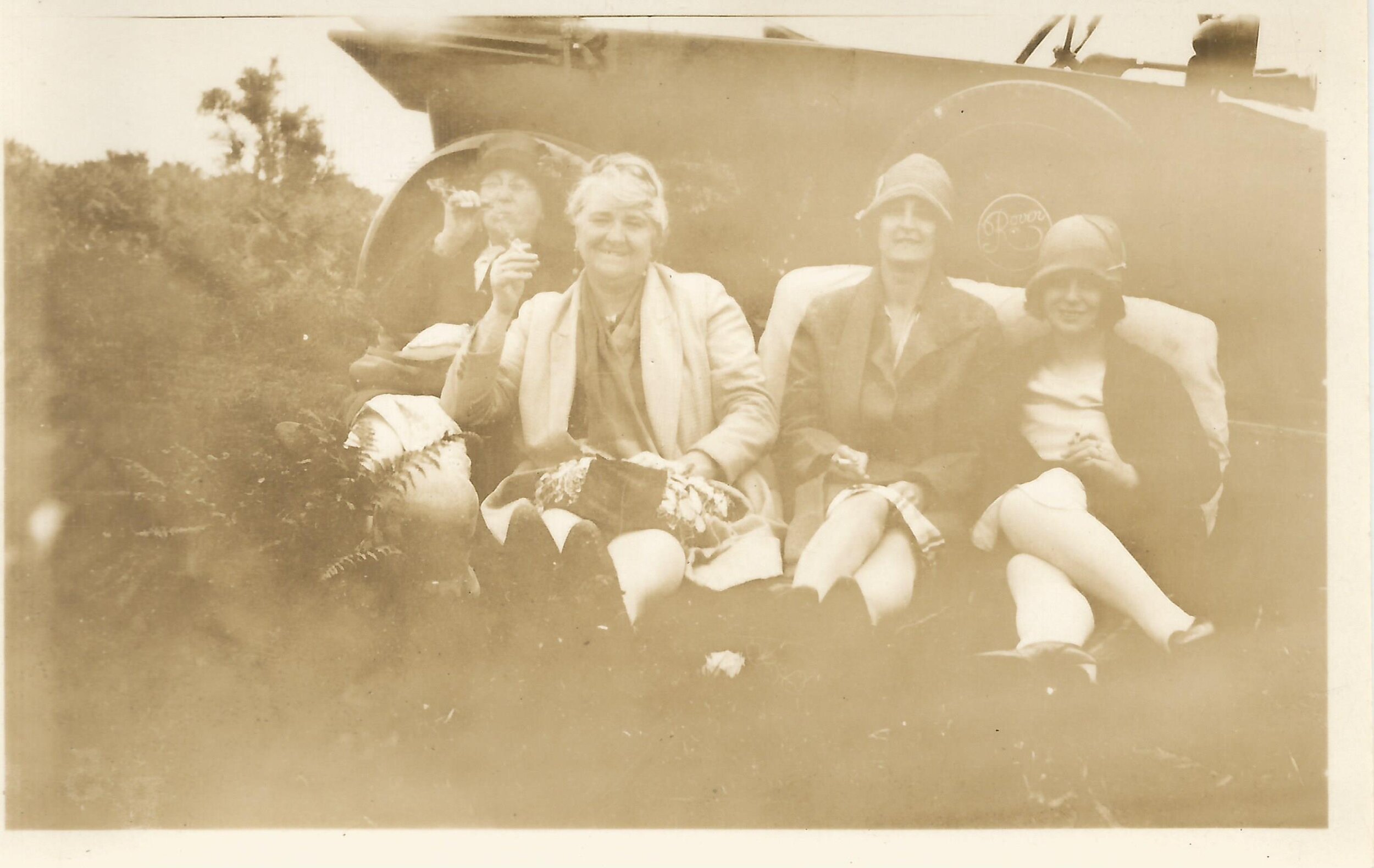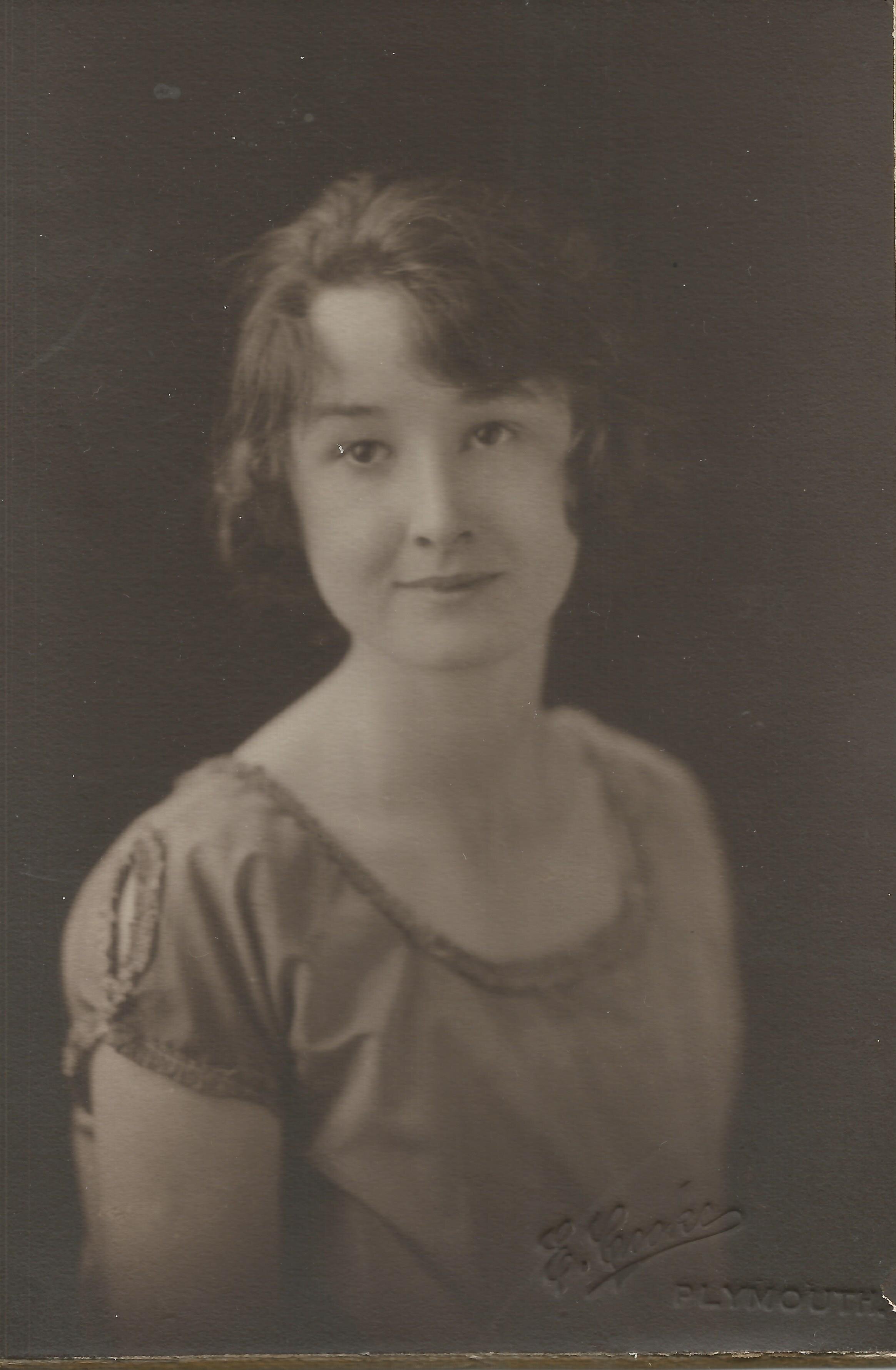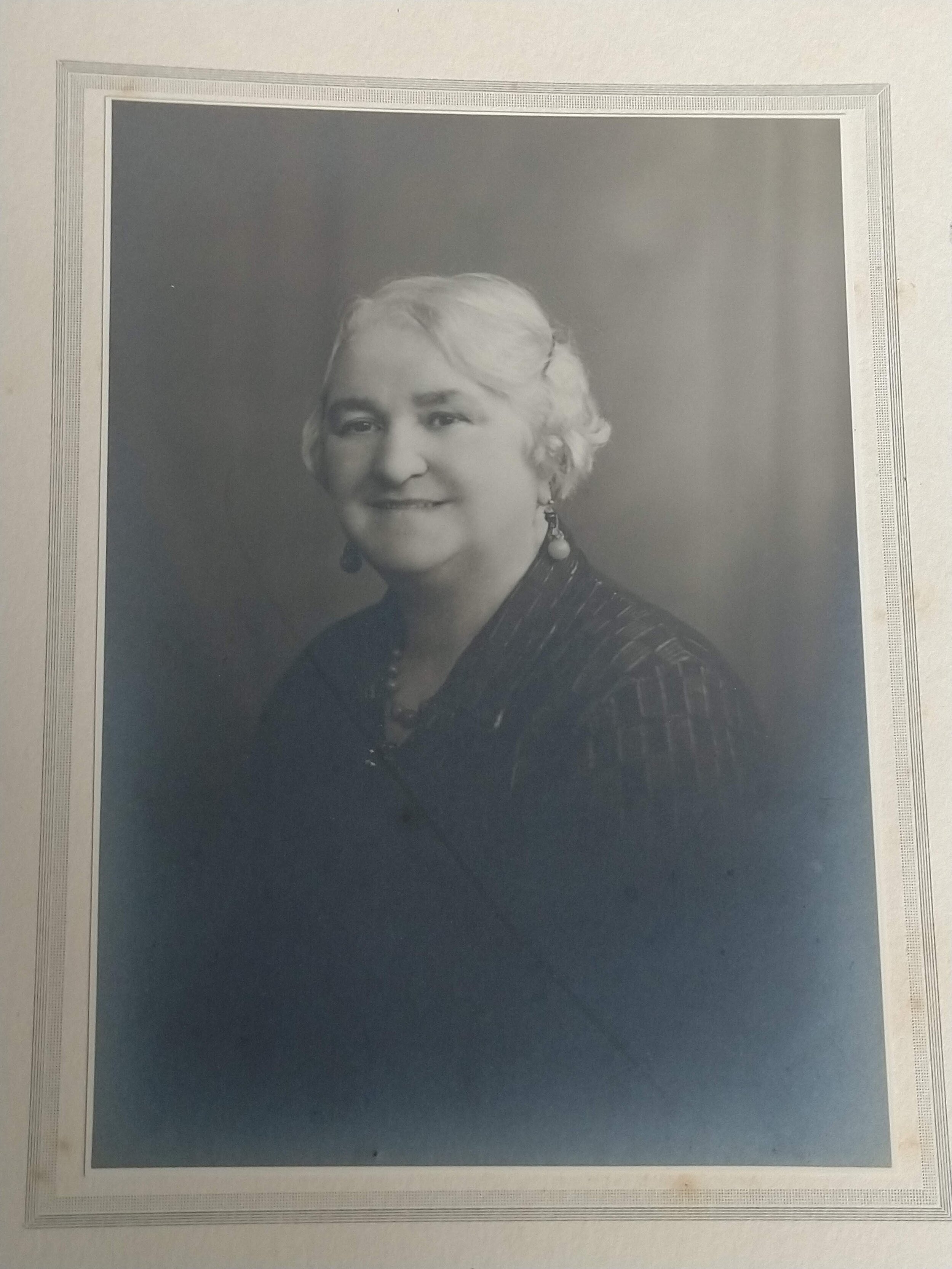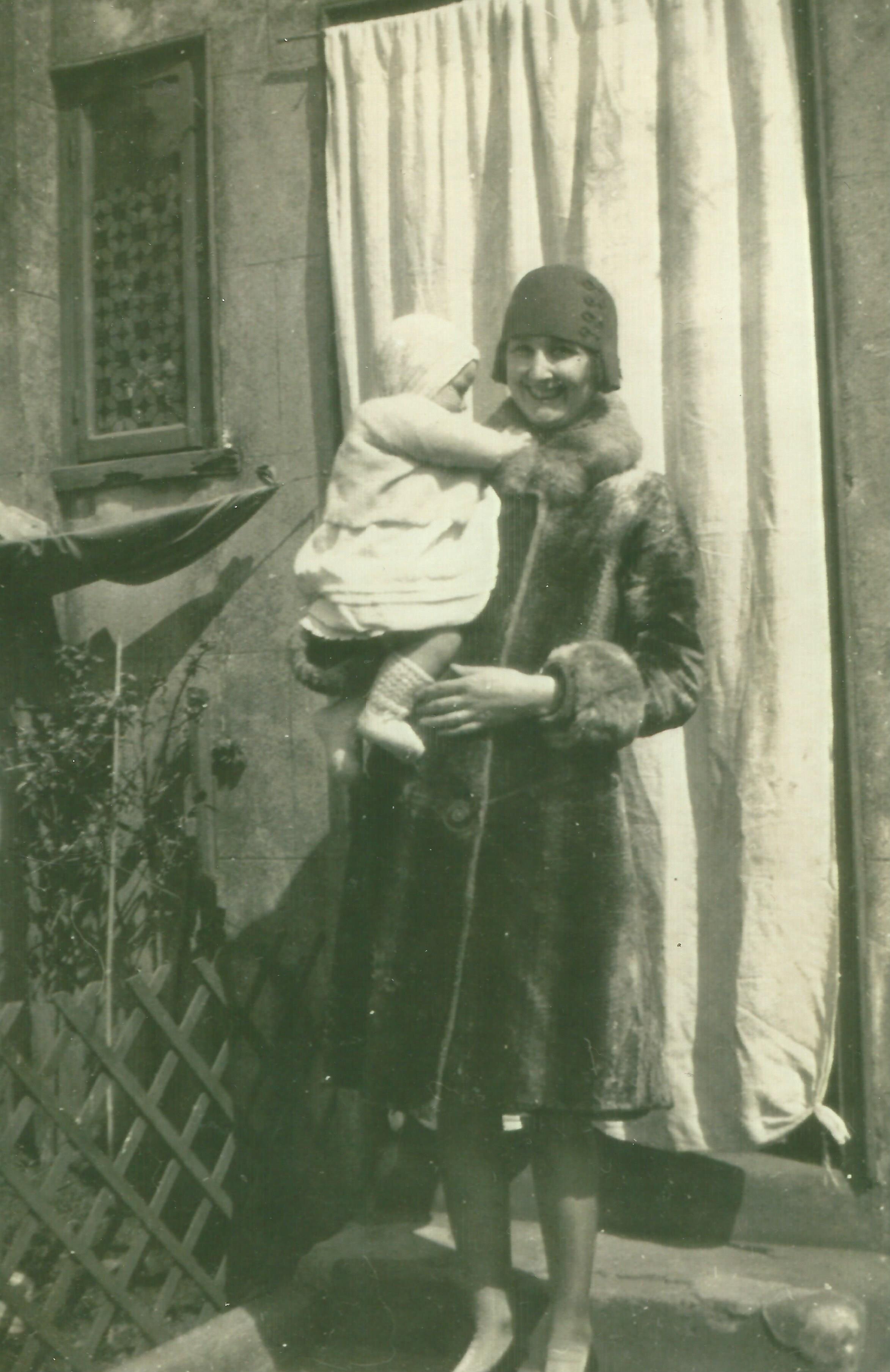Resurgam III Pen y cum gwic
Edith Gooding with her son George circa 1902
Here is a babe
washed up in a basket.
Here is a black-haired
child of the fairy
King of the Piskies
up on Pew Tor.
He’ll be looking out for her.
The Knockers down
Gwenapp copper mine
be blowing out candles,
creaking and a-groaning for her.
Woosh, woosh, woosh
here come the waters,
the breaking waters,
the flooding waters;
quick quick boys,
up the shaft,
down your tools
on that copper load.
Here she comes now,
flowing down river,
catch her quickly,
if you can.
A mighty force,
this babe in a basket.
Pen y cum gwic, Pennycomequick
Aunt Sarah whistles
in her bum boat,
rowing up the creek,
in the shadows
of the old prison.
Unafraid of rough waters,
back from selling ribbons, lanyards,
sailors’ shirts and straw hats,
to the deck-bound crews
of great sailing ships
at anchor in Plymouth Sound.
She crewkeys down
to scoop up the babe,
quick as the flash
in the child’s hazel-green eyes,
who’s a-gurgling and singing
in the way of the faye folk.
Aunt Sarah starts murmuring:
“She has the sight,
she has the sight,
I can see it in her,
glowing all around her.”
This black-haired child has sailed
down the Tavey
to the Hamaoze,
flowing past the mighty
Devonport dockyard
with its mass of boatbuilding
shipwrights smelling of rope and tar,
on its way to the sea,
to where the salt meets the sweet,
sweet waters of life.
This is the child come
down from Pew Tor,
the mighty granite palace
of the Piskey King himself.
A gift for John and Elizabeth Williams,
their longed-for only daughter amongst sons.
The year is 1877.
In their naval outfitters
shop on Catherine Street.
Elizabeth loves this child
with the blackest of hair,
for she did push her
out into this world
on that wild storm night
at the end of November.
In her dreamlike, heightened state,
she had barely noticed the
old woman who had come
down from the moor
to attend the birth.
For a very short while,
the small, crumpled babe
had gone quiet
amidst the commotion,
the sweating and blaspheming,
sleeping with her thumb tucked up
under the curl of her lip.
It was at that moment
that knockers had crept
in through the window
left open by the old hag queen,
to steal her for a night deep
in the heart of Pew Tor,
to sup the milk
left out by Tavy townsfolk
and sit on the knee
of the great King himself,
to initiate her into the old ways,
and then carry her through
labyrinthine tunnels,
in the great torchlit procession
under the Tamar
to the copper mines at Gwenapp,
where her great grandpa had
left them a crust and hammer.
They knew this little one had the sight.
Elizabeth could see it, sense it,
smell it on her child’s breath.
For through her own mother,
the dear-of-er,
she was an Irish daughter
descended from Niall of the Nine Hostages,
a true High King,
who had dared kiss
the Loathly Lady of the Well
full on the lips,
on seeing the beauty that lay beneath
her croaked, stooped form.
She named the child Edith,
blessed her
in the Wesleyan manner
of her husband’s faith,
passed down from
the great preacher himself
in his open-air ministering
at Gwennap a century before,
although under her breath
gave a nod and a prayer
to the fair folk up on the moor.
Edith sat stitching
with thirty seamstresses
in her father’s workshop
above the haberdashers store.
Stitching and stitching
layer upon layer of silk,
beads, satin fringing, rosettes,
a corset of whale bone,
a rustling bustle
and an evening cloak
lined with the wings of a swan..
Singing and stitching,
‘oh farewell and adieu
to you Spanish Ladies’,
singing for her lover to show up
in the storm waters
of the Hamoaze
ranting and roaring
like a true British sailor.
As she stitched,
she sang to the women
the story of Tamara,
who, tired of her life
deep in the underworld of Dartmoor,
sought the freedom to run
amongst the heather
and climb the great
granite giants’ head,
calling out to wild white horses
galloping across
the distant shore below.
How Tamara played and flirted
with the two giants’ sons,
Tavy and Taw,
who followed to bask
in her sunshine
as the shadows grew long
in the hot summer nights.
How, when she refused to come home,
she had been turned
into the great river Tamar,
by her red, angry father,
an earth god of small stature,
a little man carved
from deep moor caverns.
How heartbroken Tavy
was turned into a stream
by his old, giant father
to look for his lost love.
He flowed down the valley
to merge with her waters,
as they sailed out towards
Mannanan and his eternal sea.
Poor Taw woke up
from his slumber,
so soft on the heather
to find his friends missing,
rushed out in the other direction,
to flow ever the wrong way
into the Bristol Channel.
Now back to the stitching
her white ballgown complete.
The moon was full;
Edith danced and danced
under crystal chandeliers
at the grand Naval ball
in old Devonport.
When her lover appeared,
Samuel George Gooding,
with the kindest of eyes
in his formal attire,
so dashing, so dark,
to spin her around
a fragrant red rose.
Soon they were married, in 1898,
and their son was born
eighteen months later.
Off Samuel sailed,
across the great oceans,
from Esquimalt to Valparaiso
for four years and a day.
So long that the boy
did not know his father
on his return.
Two daughters followed,
then the Great Wars.
Edith knew the time
for her descent had arrived,
down into the underworld.
The copper had come
a-calling and a-knocking.
Through each gate
she left behind a song;
a hymn, a jewel and a prayer.
Each time she passed through:
her brother lost his head at Mons;
her youngest daughter nearly died of swine flu;
a 1000 horses drowned in the ocean;
the children of Halifax, Nova Scotia, screamed at their blinding;
Samuel retired from the Navy and couldn’t get work,
so they drained their lifetime savings
and could never buy a house;
they lost everything after the bomb dropped
amidst black smoke and bullets
at the top of Beatrice Avenue.
Through the dark storm,
resurgam found its way sailing down
the rivers of the underworld.
Edith paid her dues at each gate:
she sang songs for the soldiers and sailors
she played the temperance piano for Dame Agnes Weston
she tended the sick and the poor on their deathbeds
she ran the tombola up on Mount Wise
she read tea leaves in the bomb shelter after dark
she fought for suffrage alongside Lady Astor
and she loved fiercely with all her heartfelt might
in the longest of nights.
Edith emerged into the sunlight
high up on the heather,
in the middle of the purple moor,
The Tamar softly glinted
far in the distance,
she could hear the giants whistling,
the knockers knocking,
the piskies pesking in Pew Tor,
and the ancient Celtic peoples
whispering on the wind.
The heavens parted and a beam of gold
shone upon the green dragon earth.
It caught her now white hair
in a bright crown.
Edith was an elder queen,
graceful in her sovereignty.
She sighed and lay back,
her head upon the pillow
drawing her last breath in this realm
before climbing back into
the river’s willow basket,
rocking against the creek
shore at Penycumgwick.
where she could hear the waters singing:
“Shall we gather at the river,
Where bright angel feet have trod,
With its crystal tide forever
Flowing by the throne of God?
Yes, we'll gather at the river,
The beautiful, the beautiful river;
Gather with the saints at the river
That flows by the throne of God.
On the bosom of the river,
Washing up its silver spray,
We will talk and worship ever,
All the happy golden day.
Ere we reach the shining river,
Lay we every burden down;
Grace our spirits will deliver,
And provide a robe and crown.
At the smiling of the river,
Mirror of the Saviour's face,
Saints, whom death will never sever,
Lift their songs of saving grace.
Soon we'll reach the silver river,
Soon our pilgrimage will cease;
Soon our happy hearts will quiver
With the melody of peace.”
(Methodist Hymn by Robert Lowry 1864)
This story is for Edith Marion Gooding,
my maternal great-grandmother
Born 29 November 1877, Devonport
Died 16 March 1960, Devonport
Aged 82 years.
She gave birth to her daughter, Ida Marion Groom
my loving grandmother,
on 29 March 1906.
Photos below of Edith with my mother Diana as a baby and small child. Edith would dress my mother in shorts (this photo from 1934, Keyham) so that she could play and run freely. Also a photo of Edith’s daighter Ida, and a photo of Ida with Diana as a baby. Edith with friends on an outing up on Dartmoor, sat amognst the heather, smoking!
Read Resurgam I and Resurgam II

